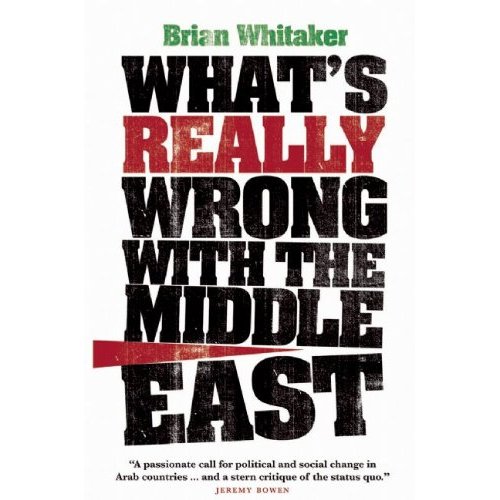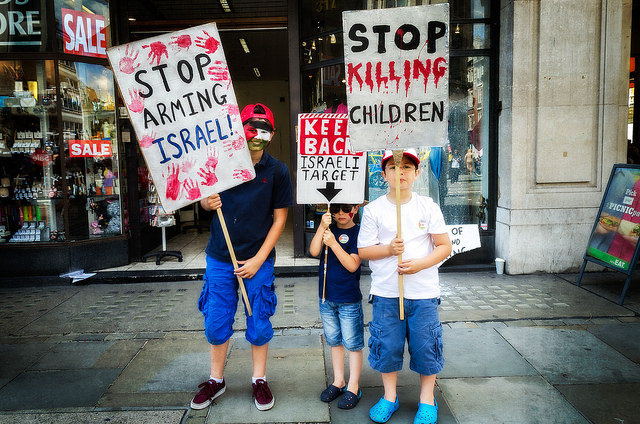Alliances in the Russian-Ukraine War
The moment Russian soldiers marched across the Ukrainian border, much of the world turned further against them. Anti-Russian rhetoric was already strong pre-Ukraine War, but with the US doing everything it could to blame the war on someone else, Russia was the perfect target of continued criticism. Though it was Russia who invaded Ukraine, it was the West that pushed Putin to attack out of “need” to defend against the tyranny of NATO. Regardless, the war has progressed without an end in sight, and even though it looks hopeful for a Western win now, there is no certainty—especially in light of shaky alliances too close to enemy territory.
Today, more than 130 countries support the West against Russia. This includes all European Union member states, all G7 countries, and all NATO members except Turkey. The force against Russia accounts for at least 70 percent of the world’s GDP, and yet only 36 percent of the world’s population because of China and India’s “neutral” stance. With what seems like the majority of Europe against Russia, only one country, Belarus, has remained loyal to its old Soviet friend.
In a blown-out perspective it would seem Russia is surrounded by enemies, yet, Russia has continued to fight with no practical end in sight. While Ukraine has prominent allies across the globe, Russia only acts as if it does. China, for one, only appears to be a strategic ally to Moscow. In spite of China’s neutrality, the two countries are remarkably similar in future long-term plans and in a common adversary, the United States of America.
The US has sought to promote its conception of democratic ideals across the globe. Consider it democratic backsliding or the classic patterns of history, but the US’ greatest perceived enemies, China and Russia, are both non-democratic states. The importance of this lies in the fundamental principles of US defense against non-democratic governments. Despite the present international system severely condemning authoritarian rule, China and Russia have easily gotten away with significantly oppressive national policies, even as some of the most populous states in the world.
With its growing power, China has politically supported Russia because it wants to attack Taiwan the same way, but Xi Jinping is a risky ally who prioritizes Chinese interests before any kind of alliance with Russia. Regardless of the fact that China is Russia-leaning in the war, China will prioritize its own interests.
So, is there anyone else that will support Russia in the war? India, Syria, Armenia, Kyrgyzstan, Tajikistan, Kazakhstan, and Uzbekistan have neither condemned nor aided Russia; Iran and North Korea have waned in providing Russia weapons; Venezuela and Nicaragua have only continued to vote pro-Russia in UN assemblies. That leaves the former Soviet bloc in Eastern Europe, most of which have said nothing to help their good ol’ pal Russia.
Out of all fifteen Union of Soviet Socialist Republics (USSR) and multiple satellite states that were just as impacted by the communist agenda, one has remained a true, loyal ally to Father Putin: Belarus. More specifically, President Aleksandr Lukashenko.
As an Eastern European, I would bet that if there was ever a non-adulterated poll of the Belarusians to see who actually liked their only ever president, those in favor would be significantly less than 50% of the population. They would be the same results that would have been received from any Soviet-occupied country in the 1970s or 80s. However, we have no concrete understanding of what Belarusians think or feel. That said, it is likely that Lukashenko is only President because he holds a monopoly of power and a nice relationship with Putin.
Russian influence in Belarus is phrased the same way as Russia’s justification of invading Ukraine; there are “Russians” living in a land not “Russian enough” that must be liberated. This is a ludicrously false idea and will never be a sufficient justification for Russia’s horrifying acts.
A Brief History
In all Soviet countries, the Russian language is pushed into formal use and education. Consequently, many Ukrainian citizens on the Eastern front of the country speak Russian, in addition to nearly the entire Belarusian population. Belarusian is now the minority language in the country of more than 9 million, with about 6.7 million speaking Russian commonly. Though Belarus was officially a part of Russia from 1776 to 1991, it has been under its influence since medieval times.
Language might be the least of the problematic aspects Belarus faces while aligning itself with Russia. Russia worked with the Nazi regime for some years during World War II, subjecting thousands of Belarusians to the horrors of concentration camps. Even before the height of Soviet idealism and Nazi terrorism in the 1940s, Belarus was the second hardest-hit among Soviet countries by the Soviet-caused 1932 Great Famine. Approximately ten million people died across Ukraine, Belarus, and other Eastern-European States.
Rationally, one would assume that a country whose next-door neighbor starved them to death wouldn’t want much to do with them in the future. Belarus has defied the odds. Their history has been as subjected to the ruthlessness of foreign powers as the rest of Eastern Europe’s, and yet, they choose to go right back to their oppressors. The answer to why Belarus betrayed its fellow Europeans lies in its leadership, geography, and as with all conflicts, its economy.
After the USSR dissolved in 1991, the Republic of Belarus moved to adopt a new constitution and introduce a presidency. Belarus followed the same paths as other former Soviet states: the path to democracy, and the subsequent path to Westernization. In its beautiful dream of reaching democracy, Belarus fell short. In 1994, Aleksandr Lukashenko became the first President of the Republic of Belarus and ruled with an authoritarian regime, despite being elected democratically. Even today, Belarus is less of a liberal democracy than Russia itself.
Transitioning to Present-day Belarus
The amount of corruption in the political atmosphere of Belarus is abundant. It involves fraudulent elections, jailing opposing presidential candidates, imposing restrictive measures on voting, and much more. Lukashenko has maintained his presidential status through oppressive mechanisms that are anything but democratic.
Lukashenko tied Belarus to the Collective Security Treaty Organization (CSTO) that binds it to aiding Russia and other members if attacked: a treaty that is still valid for Belarus today. Other members of the treaty, such as Armenia and Kyrgyzstan, have not backed Russia in its war against Ukraine. Belarus, on the other hand, is nestled deep in the heart of the conflict.
Belarus has been an indispensable ally to Russia in the war against Ukraine, rising in prominence because of its geographical connections to NATO allies. Belarus is the perfect example of how when democratization fails to grow out of a new government, the effects are seen across all geopolitical realms. Russia has used Lukashenko as a pawn in a greater game of gaining back at least influential control of the Eastern European bloc. With Belarus in his control, Putin has more access to a sphere of influence he believes is securely his.
Economic Influences
Belarus, Kazakhstan, Kyrgyzstan, Russia, and Tajikistan formed the Eurasian Economic Community in 2000. In 2009, to facilitate the ease of trade between nations, Belarus, Kazakhstan, and Russia created the Customs Union. In 2011, the economic integration of Eurasia was officially adopted in the Single Economic Space of Belarus, Russia, and Kazakhstan. The subsequent Eurasian Economic Union was signed in 2014 by the same three actors in further confederation with each other.
In the economic realm of the Russia-Ukraine War, Belarus has been a continuous provider of trade and easing the effects of sanctions placed on Russia. Belarus has been closely intertwined in Russia’s economy since its establishment as an “independent” state in 1991 and is still energy dependent on Russia.
With Western-allied Turkey still responding to Russia’s economy and in addition to the EU’s sanctions not being effective enough to end the war, Russia’s economy has adapted. The sanctions have been so inefficient that even Western technology is landing in Russian materiel.
A Military Alliance
As the Russia-Ukraine War progresses, the Belarusian alliance will aid Russia in military advances against the West and Ukraine. Belarus borders NATO members and Russia has convenient access to them through Lukashenko’s graciousness. In spite of this, Belarus has not sent ground troops to Ukraine; the Belarusian army is designed to resist a NATO invasion in the case that the Russia-Ukraine war or future conflicts need them.
Belarus’ marital status with Russia has put Lukashenko in an immediate position to assist Russia in the likelihood of nuclear war. In most recent events, Lukashenko has stated his prospective fear of NATO-member Poland attacking Belarus in order to justify the possibility of moving Russian nuclear weapons in position on Belarusian soil.
The strategic geopolitical landscape of Belarus for Russia could set Western allies on edge to proceed with more aid for Ukraine. Belarus’ standing with nuclear weapons has been dependent on relations with the West (Treaty on the Non-Proliferation of Nuclear Weapons); nuclear war discussions are a radical turning point for this conflict. Nevertheless, the Russia-Ukraine War has broken the relative post-Cold War peace that caused a necessary global abstention from nuclear weapons.
Belarus and Future Implications
This war will set a major precedent for the future. It will determine Western relations versus the rising hegemonic powers of Russia and China, especially in the realms of international conflict, diplomacy, and the use of weapons of mass destruction. Belarus has and will continue to significantly aid Russia in its endeavors. With Lukashenko at his side, Putin has a multitude of opportunities in the progression of Russia’s war on Ukraine, and truly, Russia’s war on Western influence.
Ultimately, it is up to the Belarusian people to side with the West against Russia. As of today, there are still no divorce papers on the table for Mr. and Mr. Vladimir Putin.



